
The stage is set in the heart of Beijing for a grand display of power and military might that has been choreographed by President Xi Jinping.
Eight huge Chinese flags flutter and flank the portrait of Mao Zedong, the founder of Communist China, which sits on top of the Gate of Heavenly Peace overlooking Tiananmen Square, one of the largest public squares in the world.
Below are rows of seats reserved for 26 foreign heads of state, including Russia's Vladimir Putin and North Korea's Kim Jong Un, whose attendance is a diplomatic win for Xi.
Across the road, near the Great Hall of the People, two huge floral arrangements commemorating the end of World War II rise up alongside seating for around 50,000 invitees.
On the last day of preparations - Monday - Chang'an Avenue, the multi-lane road that cuts through the square was once again open to the public. Drivers and cyclists held their phones aloft trying their best to capture the scene.
Ostensibly the parade marks 80 years of Japan's surrender in the war, and China's victory against an occupying force. But it's so much more than that for President Xi.
This is a big week for him, with quite a few firsts. He enticed Indian Prime Minister Narendra Modi to visit China over the weekend for the first time in seven years, rebooting a key economic and strategic relationship.
More than 20 world leaders attended the Shanghai Cooperation Organisation (SCO) summit, which just concluded - its largest ever gathering.
And a North Korean leader will attend a Chinese military parade for the first time since 1959.
The Chinese leader is having his moment in the spotlight.
The SCO summit in Tianjin has allowed him to project power and offer a vision of a new world order which he hopes will challenge the United States. Now attention turns to the parade in Beijing, which will showcase his country's growing ability to rival the US in any conflict.
The leaders of Iran, Malaysia, Myanmar, Mongolia, Indonesia, Zimbabwe and central Asian countries will witness the precise troop formations and get a glimpse of what authorities say will be new hypersonic weapons and unmanned underwater drones. The only Western leaders on the guest list are from Serbia and Slovakia.
Kim Jong Un is a surprise addition - his attendance was only announced at the end of last week - and his armoured train and usual motorcade flanked by bodyguards will add to the spectacle.
Xi is expected to have both Kim and Putin by his side which will inevitably lead to Western headlines or analysts describing them as the "axis of upheaval".
While the parade is a show of China's strength and Xi's influence as a world leader, there is also a clear domestic message: pride and patriotism.
China describes World War II as the "people's war of resistance against Japanese aggression", although much of the resistance was not from the Communist Party, but from the nationalists who later lost the civil war to Mao and his forces, and have been largely scrubbed from national memory.
In the run-up to the anniversary, several films have been released depicting this struggle, some of which have been box office hits. State media has been publishing reports to "foster a right view of WWII history".
The campaign has caused some friction with Japan. Last week, Beijing lodged a protest with Tokyo over reports that Japan had asked European and Asian governments not to attend the parade.
All of this appears to be part of a rallying cry to the nation, as China struggles with a sluggish economy, youth unemployment and plummeting house prices. Demand is weak and the most recent data suggests Trump's tariffs are hitting factory output. And the "anti-corruption" drive continues, with reports of high-ranking officials being investigated.
There is discontent, even disillusionment, especially among young people and it has seeped through, even on the tightly controlled Chinese internet.
The fear that this could spill into the real world is partly what has been driving the extra-cautious preparations, which have become a demonstration of the Party's control of a capital city home to more than 21 million people. The city has grown quieter as the parade draws closer.
Airport security scanners have been installed in some office entrances. All drones are banned and international journalists have been visited at home, some on multiple occasions, to ensure they get the message.
Guards have been stationed 24 hours a day at the entrances to overpasses and bridges to prevent any protests, some of them in army uniforms.
Three years ago, when the Party chose Xi as its leader for a historic third term, a protester unfurled a banner over a major highway bridge criticising Xi and calling for his ouster. He was taken away instantly and we still don't know what happened to him.
But that is a moment the Party does not want to relive.
Communist Party officials have spent months planning and preparing for their first military parade in six years. More than 200,000 flags have been put up across the capital.
More floral arrangements depicting China's fight against Japan sit proudly on prominent roadsides and roundabouts. There's even a new city "lightscape" to brighten buildings in the business district.
Officials from the Parade Command Office have said "the overarching principle... is to avoid disturbing the public as much as possible".
But for those living in Beijing, the parade has upturned life.
Tanks could be heard rolling down the streets during weekly overnight rehearsals and the sounds of marching echoed far beyond the parade route.
People living near Chang'an Avenue, which leads to Tiananmen square, were told to stay off their balconies to ensure the rehearsals could be held in secrecy.
Schools, businesses and hotels along the parade route will be closed for the next two days. There are multiple road diversions and subway line closures, which have effectively paralysed transport into and out of the city centre.
Even getting hold of a shared city bike, often the best way to get around Beijing, can now be troublesome. Usually there are hundreds of them lined up outside subway stations, and along pavements. But recently city workers have been scooping them up to move them further away from the parade route. Trying to hire the odd one left behind is not an option: the bike will not move.
There have been reports in the past that China has used its air force to ensure there are blue skies for the parade. The aircraft can manipulate weather to trigger rain through cloud-seeding one or two days in advance, to make sure it's clear afterwards.
It's hard to know if this tactic has been used this year, but forecasters are predicting clear skies. Officials in Beijing are taking no chances on President Xi's big day.(BBC)

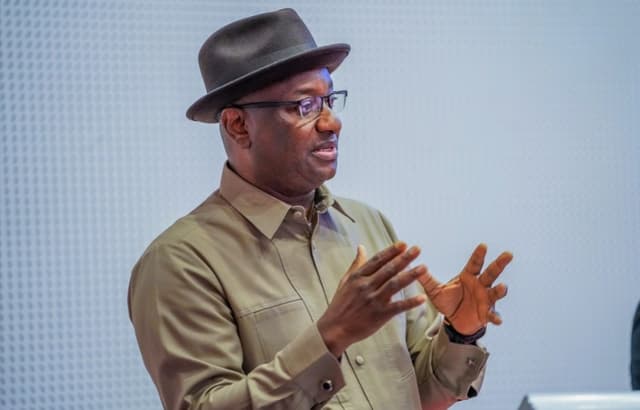
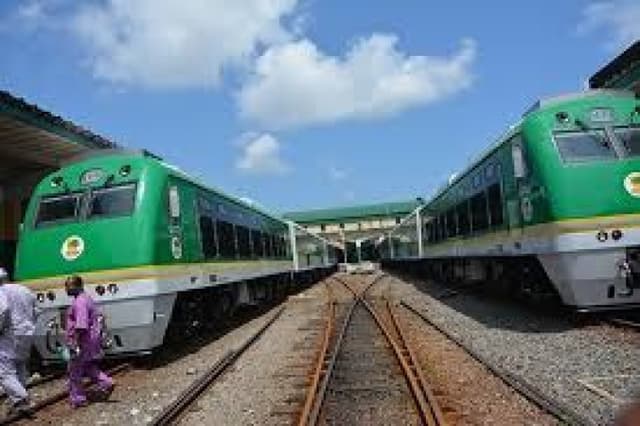
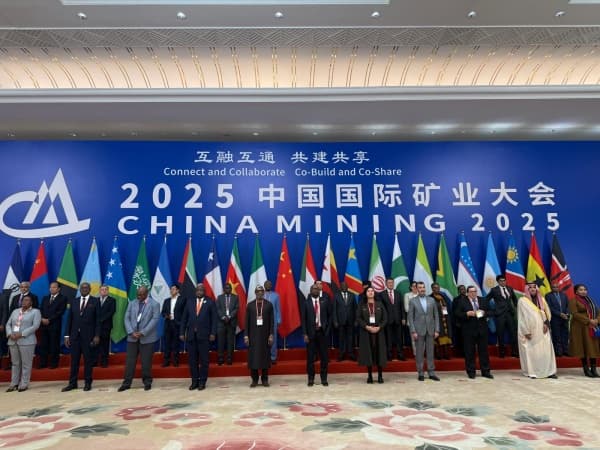
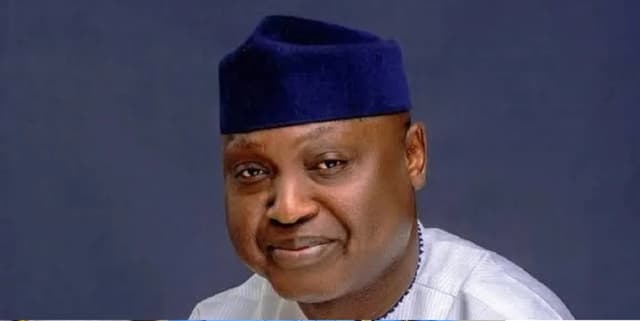
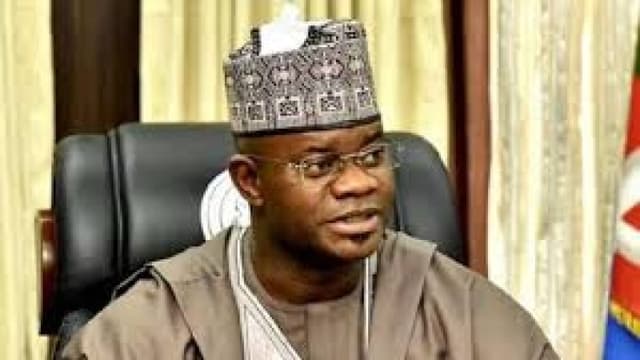


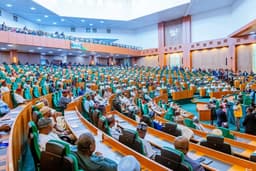

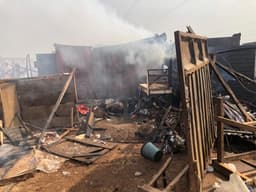


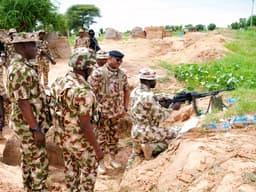


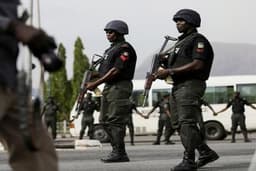
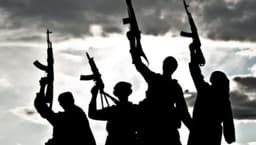
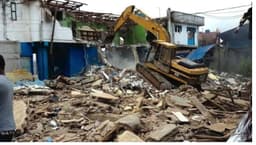


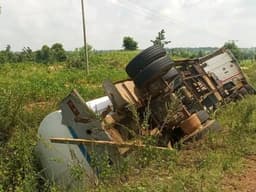
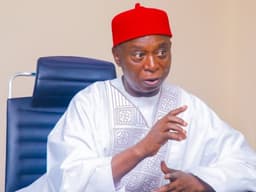
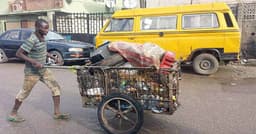
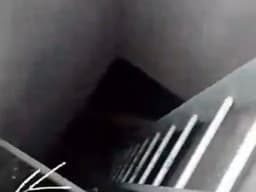


NEWS EXPRESS is Nigeria’s leading online newspaper. Published by Africa’s international award-winning journalist, Mr. Isaac Umunna, NEWS EXPRESS is Nigeria’s first truly professional online daily newspaper. It is published from Lagos, Nigeria’s economic and media hub, and has a provision for occasional special print editions. Thanks to our vast network of sources and dedicated team of professional journalists and contributors spread across Nigeria and overseas, NEWS EXPRESS has become synonymous with newsbreaks and exclusive stories from around the world.